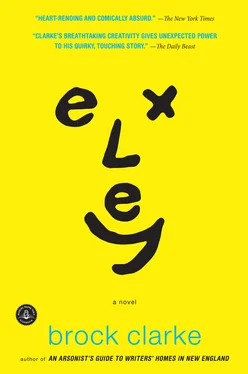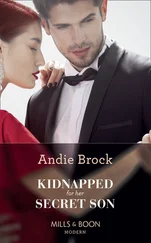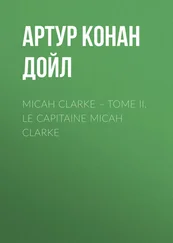Here are those lists:
EXLEY’S FAVORITE PEOPLE
Frank Gifford (football player)
Freddy (bartender)
The Counselor (ex-lawyer)
Mr. Blue (aluminum siding salesman)
Vladimir Nabokov (writer)
Lolita (character)
Humbert Humbert (character)
Kinbote (character)
Christie Three (dog)
Bumpy (brother-in-law)
Edmund Wilson (writer)
His dad
His sons
His mother
His wife
Women in general
EXLEY’S LEAST FAVORITE PEOPLE
Paddy the Duke (another crazy person)
His dad
His stepdad
USS Deborah (Mr. Blue’s wife)
His wife
Prudence (sister-in-law)
His mother
Women in general
The people who “play soldier” at Fort Drum
“You should probably put my name on the list of people he doesn’t like, too,” Harold said from behind me. He walked to the other side of the table and sat down, his knees banging into mine. Harold looked glum and hurt. I mean that literally. His lip was still really swollen from when the guy on the sidewalk had punched him, and there was a scabby cut in the middle of the swollen part that looked like it might bust open at any time.
We didn’t say anything for a while: I put the lists in my back pocket and picked up my spoon, and then we just sat there in silence, eating our tapioca pudding. Every now and then, though, Harold looked up at me eagerly. This was the thing about Harold: I really was his friend. And so he always believed that, sooner or later, I would act like one. That I wouldn’t treat him like everyone else treated him.
“Sorry about yesterday,” I finally said.
“Thanks,” Harold said, and he smiled, although not all the way. I could see the lip skin stretch over the swelling.
“He wasn’t even Exley,” I said. “It was just some random guy.”
“Why’d you even think he was Exley in the first place?”
“Exley’s from here,” I said. “He’s from Watertown.”
“Really?” Harold’s parents were from Watertown. His grandparents were, too. Harold had been born in Good Sam, just like me. “Where’d he grow up?”
“I just told you,” I said.
“No, I mean, what street?”
“I don’t know,” I said. I was starting to get annoyed that Harold had asked that question and that I didn’t know the answer to it. “What difference does it make, what street? He’s from Watertown . He grew up here.”
“And now he’s homeless?”
“No,” I said. “Why would you say that?”
“Because you thought that guy on the sidewalk was him.”
“I told you,” I said. “That wasn’t him. That was a mistake.”
“What’s his name again?”
“Exley , Harold,” I said. “You should remember that in case he ends up wanting to hit you in the face, too.”
Harold put his head down and scraped his spoon around in his empty thing of pudding. It was hard to be Harold’s friend, even if he was your only friend. Especially if he was your only friend. He would always end up saying something that would make you mad. And then you’d say or do something to him that would make him sad. And then you’d regret it. And then he’d do something else to make you forget that you’d just regretted the thing you were about to do again. “I just never heard of him,” Harold finally said. “Not before yesterday.”
“Well, you should have,” I said. “He’s a famous writer.”
“If he’s so famous,” Harold said, “how come I never heard of him?”
I almost told Harold to shut up. But I didn’t. Because it was a good question. Mrs. T. hadn’t heard of him. Harold hadn’t heard of him. No one in advanced reading had heard of him. The guys in the Crystal hadn’t heard of him. I thought of the Watertown Public Library and the historical society. The library I went into all the time. It had big, comfortable leather chairs and creepy guys cruising the Internet and helpful sayings etched into the walls and ceilings, like MIND IS THE GREAT LEVER OF ALL THINGS. The historical society I’d been to a few times on class trips. They had an exhibit about the Watertownian who’d invented chloroform, and an exhibit about the Watertownian who invented the bedspring. The historical society evidently liked Watertownians who helped people go to sleep. But I didn’t remember the library or the historical society having anything about Exley. If he was from Watertown, and he wrote this book and got famous, how come no one had ever heard of him? If I hadn’t seen the book and seen my dad read it hundreds of times, and if I hadn’t read it myself, two days earlier, for the first time, I would have wondered if I’d made up Exley and his book, the way Mother thought I made up other things. This was a problem. Because the Exley I presented to my dad had to be the famous writer he loved, not some guy no one had ever heard of. Which meant I had to find him and remind people of what a famous author he was before bringing him to my dad. I didn’t know how long that would take, but I did know that I wouldn’t have time to find Exley’s favorite and least favorite people and ask them if they could help me; I would have to find Exley on my own, and fast. But how? Where? I knew Exley wasn’t at the New Parrot or on the sidewalk outside the Crystal. But the guys at the Crystal said that there was a guy on Oak Street who looked like Exley. I didn’t know if I should believe them, but I did know where Oak Street was and how to find out if they were telling the truth.
“Miller,” Harold said, “are you going to answer my question?”
“No,” I said. I got up from the table with my tray, and Harold followed me. We chucked our pudding things and milk cartons in the garbage, then put the trays on top of the can. Harold started to go one way, toward advanced reading. But I went the other way, toward the art and music rooms, which were right down the hall. Between them was the back door. Harold didn’t even realize I wasn’t walking with him. I knew this because he was talking to me. I could hear him as he walked one way and I walked the other. “Well, maybe he’s famous,” Harold said, “but just not locally famous.” And he started talking about how someone couldn’t even be locally famous. “That’s an oxymoron, ” I heard Harold say. I turned and looked at him. Two girls walking by had heard him talking to himself. They looked at each other with bug eyes, mouthed the word “moron,” turned around, and followed Harold, making yakking motions with their hands. One of them had big, bright bracelets that hula-hooped around her wrist as she opened and closed, opened and closed her hands. Hey, that’s my best friend , I said to them in my head. He’s actually a good guy. Leave him alone . Then I turned, pushed opened the doors, and was gone.
Doctor’s Notes (Entry 16)
Oh, happy night! After M.’s mother thanked me for apologizing for lying to her, we spent a wonderful fifteen minutes speaking on the phone. Rather, M.’s mother spoke — whispered — about M., about her job at Fort Drum, about her dislike — dislike and, indeed, antipathy —for Watertown, and I listened. I’ve become quite good at this listening business. M.’s mother confirmed this: “Thank you for listening to all that,” she said. I told her she was most welcome, again. After that, it was clear it was my turn to say something, and so I said I was looking forward to our “date.” The minute I said the word, I wondered where I’d gotten the “balls” to say it. My mental health professional is always saying he wishes he could write me a prescription for some “balls.” “Date?” M.’s mother asked. It’s possible she was simply teasing, but nonetheless my heart rose to my throat and began to quiver there. “Yes,” I said, and reminded her of my talk at the NCMHP annual meeting on Thursday, and how she’d agreed to accompany me. “That’s Thursday?” she said. “Shit.” And then she explained that Thursday was also M.’s birthday. “We always go out to dinner on his birthday!” she said. I could appreciate her situation. But I wanted her to appreciate mine as well: that I would die if she could not come with me to the annual meeting; that I would die if she would not, after all, be my date.
Читать дальше












